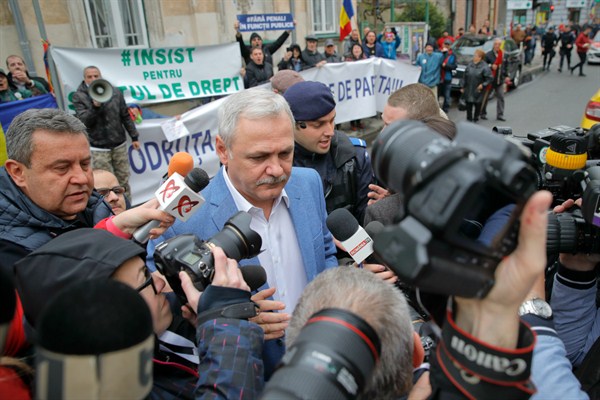Loading your audio article
Some protesters mockingly waved handcuffs in Liviu Dragnea’s face as he left the courtroom in Bucharest to start a three-and-a-half-year prison sentence on May 27. Many others celebrated less publically, seeing the fall of Romania’s most powerful man as proof that the country’s embattled institutions, though under more and more political pressure, still function independently.
Dragnea’s arrest put the brakes on the government’s controversial judicial reforms, viewed by many of Romania’s allies as an attempt to undermine a strikingly successful anti-corruption drive. The government’s staunchest critics hope it will be a knockout blow for the ruling Social Democratic Party, or PSD, which until recently was led by Dragnea and which opponents see as little more than a crypto-communist organization supporting kleptocracy.
The new PSD leadership, under Prime Minister Viorica Dancila, has already moved quickly to build bridges with the European Union and with President Klaus Iohannis, with whom the party has long been at loggerheads. Yet even many of those who welcomed the judgment against Dragnea are cautious about leaping to the conclusion that the war against corruption in Romania is won. A divisive debate over Romania’s National Anticorruption Directorate, or DNA, and the tensions between different institutions in the country’s public life, are not about to disappear.

